Martial Art
Wushu is a technology inherited from ancient military wars. Martial arts can strengthen the body and defend the enemy. The people who practise martial arts are guided by technology and lead the practitioners into the traditional way of enlightenment (martial arts) to understand the objective laws of man and nature and society, which is the direction and guarantee of human material civilization.
Wushu has the power to stop and fight and maintain peace. As the survival skills of the descendants of the Chinese nation, Chinese traditional Wushu has gone through thousands of years of storms and hardships along with the development of Chinese history and civilization. It has become the soul to maintain the survival and development of the nation, and the soul to carry the genetic composition of Chinese children. Wu is the strength to safeguard its own safety and interests. We practice martial arts, so that we can be promoted from body to heart, from soul to soul, and full of security, spiritual strength, with the strength of self-defeating. This is a magic weapon that has been precipitated and settled in the past dynasties.
On June 22, 2015, in the working meeting of the Organizing Committee of the "Selection Conference of Substitute Competition Items Proposed by the Host City of the Tokyo Olympic Games in 2020", held in Tokyo, Japan, eight items were selected as candidate items for the Tokyo Olympic Games in 2020, including martial arts.
On September 28, 2012, the Organizing Committee of the "Tokyo Olympic Games 2020" announced that they would submit to the International Olympic Committee a list of new project nominations. Wushu is not among the five nominated projects, which means that the Wushu project will not be eligible for the Tokyo Olympic Games 2020.
Performing arts, before the appearance of the movie, was mainly presented in the form of stage drama. The predecessor of Chinese opera was Chinese opera. The term "opera" was first used in history by Song Liu-cheng (1240-1319) and then by Yuan (1271-1368), Tao Zongyi, a native of the Yuan Dynasty, dropped farming in Nancun, and Wei Liangfu, a Ming Dynasty, a quotation of Nanci. It is worth noting that Chinese drama began to flourish in the Yuan Dynasty since the beginning of the Yuan Dynasty.
The imperial examination system (including literary and military examinations) was stopped in the Yuan Dynasty. The rulers of the Yuan Dynasty had a low level of Chinese, but they were very happy to see the theatre. As a result, the literati who wanted to take the examination did not go out and went to the street acrobatics and theatre troupes to write scripts to make a living. Among them, a large group of people, such as Hanqing, Wang Shifu, Ji Junxiang, and Ma Zhiyuan, who wrote The Orphan of Zhao, as well as the martial arts instructors of Yuan Zaju, made Chinese opera (a combination of folk songs and dances, rap and comedy) rapidly become one of them. Chinese drama consists of literature, music, dance, art, martial arts, acrobatics, etc. As a result, the dramas produced in the Yuan Dynasty quickly caught up with the tragedies of ancient Greece and Sanskrit operas of ancient India, and made up for the deficiencies in the comparison between Chinese dramas and world dramas; Especially the Zaju of the Yuan Dynasty, it spread widely and rapidly among the people.
Among them, the warriors who were responsible for the guidance of martial arts in Yuan Zaju would not let the Yuan people learn the real Chinese martial arts. (Which nationality would invade its foreign enemies by going to Baibai Church? No fool! As a result, these Wuzhi opera troupes and shelves moved to Beijing opera, and gave them the name of "Wushu" to entertain the Yuan Dynasty, which is good-looking and happy. This is what many people see on the stage now. The practitioners of Chinese Wushu know that these flower shelves used only for performance have little to do with the "Wushu" itself, and even the purpose of "Wushu" is intentionally reversed. Drama (Drama), the battle of hog. It's good looking. It's used for teasing people.
Because operas and dramas are widely spread among the people, and real Wushu has always belonged to the Royal noble and secret skills, so it is difficult for the people to get a glimpse of real Wushu (panoramic); and later, the film art spread "Chinese Wushu" and "Chinese Kungfu" widely, so that routines and performing "Wushu" among the general public. The impression of being preconceived has led to the performance and routines of modern Chinese martial arts.
However, among the people, there have always been groups practicing Chinese traditional martial arts. They still adhere to the traditional ethics of non-performance and non-competitive, restrained and respectful, and widely spread among the people.
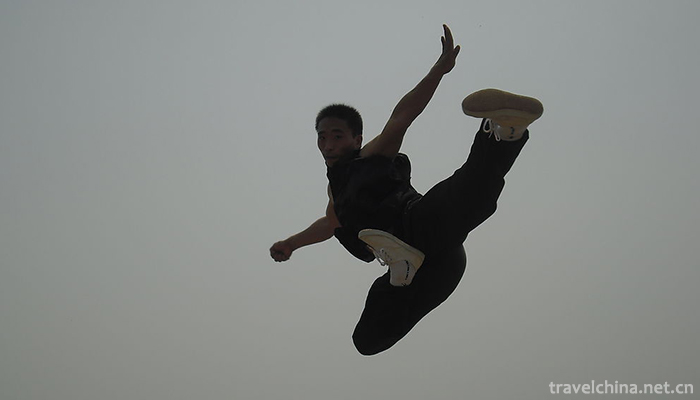
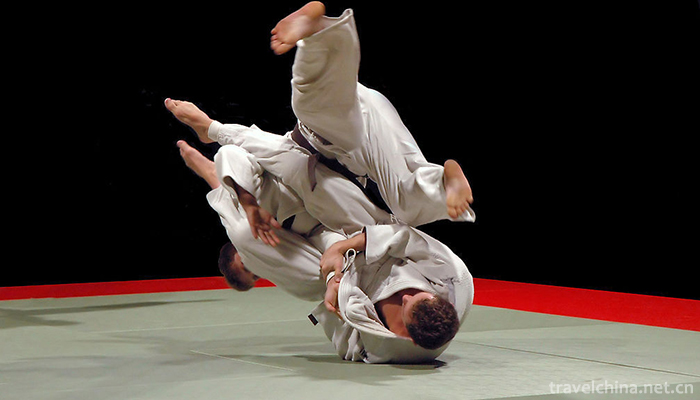
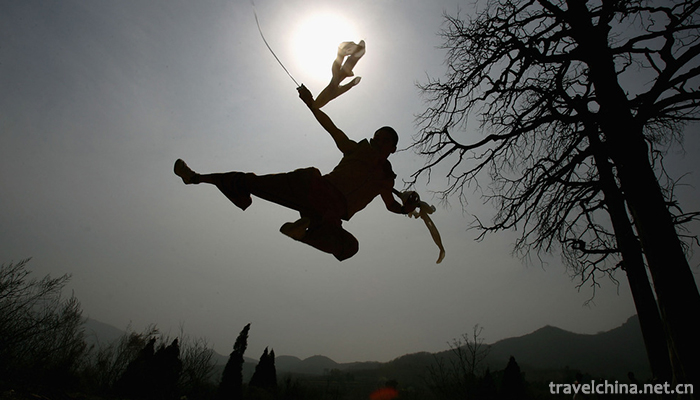
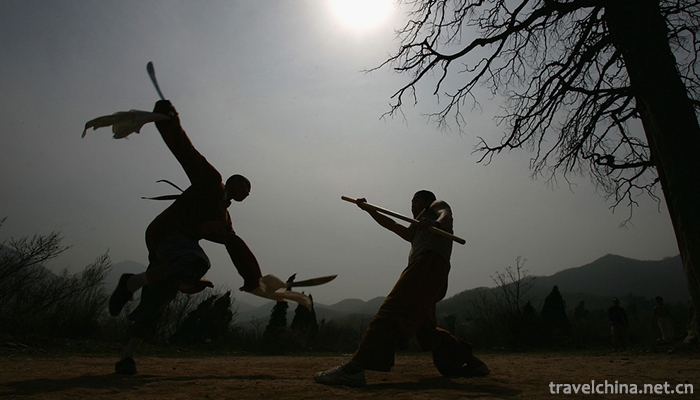
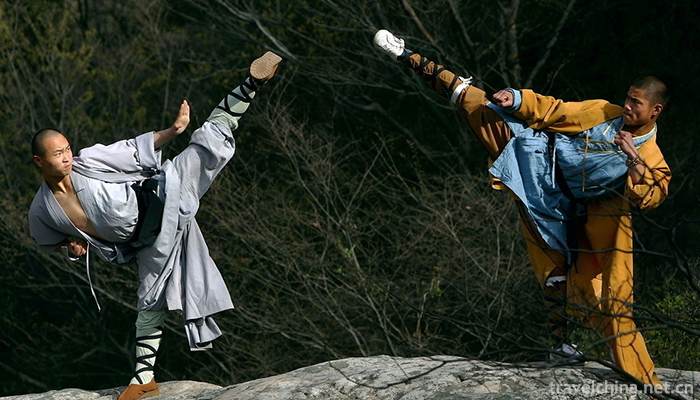

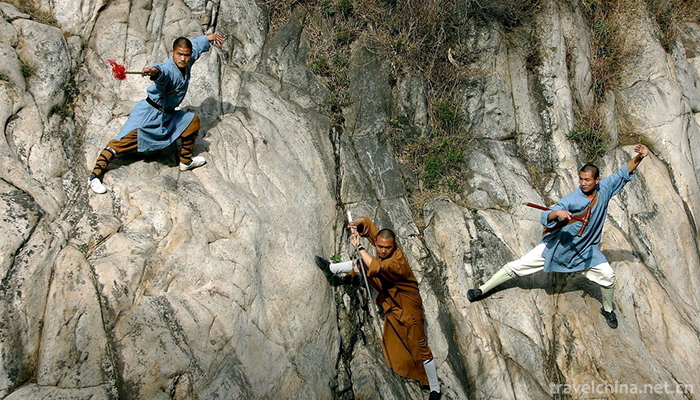
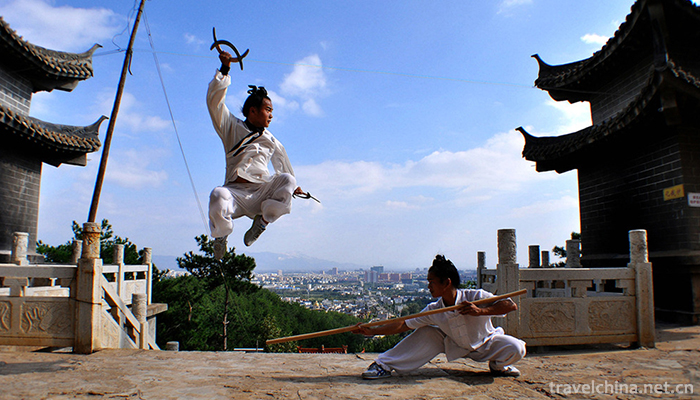
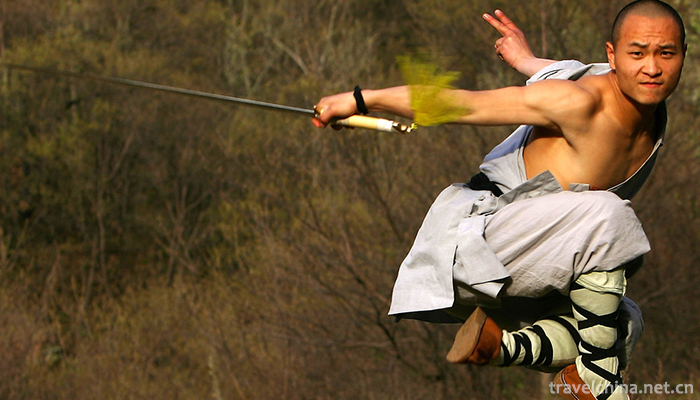
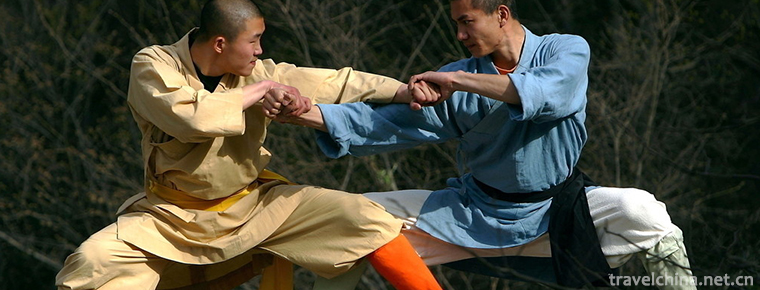
-
2.Detian waterfall
Detian Waterfall is located in Detian Village, Shuolong Town, Daxin County, Chongzuo City, Guangxi Zhuang Autonomous Region. It is located in the upper reaches of Guichun River on the border between C
Time 2018-12-12 -
3.Guilin Happy Land Theme Park
Guilin Lemandi theme park Gudong Waterfall is suitable for sightseeing all the year round. April-October is the best time for Guilin tourism. The scenic spot is located in Guilin
Time 2018-12-12 -
4.Dazhushan Scenic Area
Dazhushan Scenic Area is located on the southeast coast of Huangdao District. Its main peak is 486 meters with a total area of 65 square kilometers. It is mainly divided into Shimen Temple Scenic Area
Time 2019-01-08 -
5.Bouyei costume Guizhou Province
As a material and cultural phenomenon, the production and change of Buyi costumes are always in line with the social and economic development.
Time 2019-04-04 -
6.Construction Skills of Felt House of Kazakh Nationality
Kazakh mattress building skills, Xinjiang Uygur Autonomous Region Tacheng area local traditional skills, one of the national intangible cultural heritage.
Time 2019-05-02 -
7.Hequ folk songs
Hequ folk song is a kind of traditional folk music. Shanxi's human geographical environment has formed the "Xikou" mode of life and production in which local people return to Daqingshan and
Time 2019-05-03 -
8.Ningjin Acrobatics
Ningjin acrobatics is one of the traditional folk acrobatics in Shandong Province. With its long history of development, extensive mass base, profound cultural heritage and exquisite performing skills
Time 2019-06-08 -
9.Sigangli
Lincang City is located in the southwest of Yunnan Province, which is adjacent to the west, southwest of Yunnan and Myanmar. It has jurisdiction over one district, four counties and three autonomous c
Time 2019-06-16 -
10.Yidege Ink Making Skills
Yidege is a local traditional handicraft in Beijing. It is well-known for producing ink. The products have bright ink, rich and light colors, fluent writing, moderate concentration, strong fragrance,
Time 2019-07-11 -
11.Beijing Wuzi University
Beijing Wuzi University is a public institution of higher learning which is characterized by logistics and circulation, based on economic disciplines, with management disciplines as its main branches,
Time 2019-09-06 -
12.Deyang City Construction
In January 2020, the science and Technology Department of Sichuan Province and the provincial development and Reform Commission approved to support Deyang and other six cities to carry out the construction of provincial innovative cities.
Time 2020-12-14